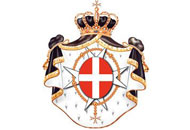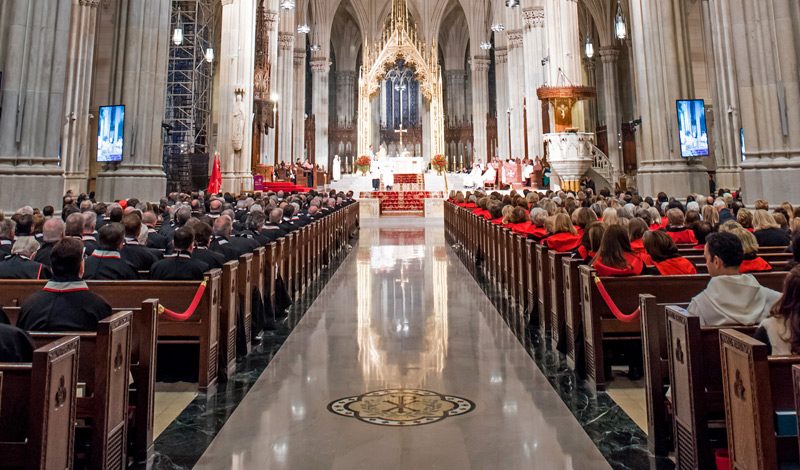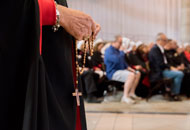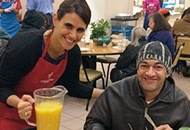Conversion and the Real Presence Describes His Journey to Catholicism
Dr. John Bergsma, Professor of Theology at the Franciscan University of Steubenville in Ohio, was the first speaker in the Boston Area’s Year of the Eucharist Speaker Series. Dr. Bergsma is a Catholic scholar, the author of almost a dozen books about Scripture and the Catholic faith and the happily married father of eight children.
While the program was presented by the Boston Area, members and friends throughout the Order of Malta tuned in via Zoom on Tuesday, December 1st to hear Dr. Bergsma speak about Conversion and the Real Presence. Dr. Bergsma had been raised a Dutch Calvinist and had been a pastor in that faith before converting to Catholicism. His presentation took his audience through the journey he had traveled to reach that decision.
In studying to become a Dutch Calvinist pastor, Dr. Bergsma began to doubt one of the pillar concepts of Protestantism, Sola Scriptura, which is the idea that the Scriptures alone provide all we need in order to be saved and to run the church. “Everything that we possibly need for the Christian life, whether individually or communally, it’s all in the Scriptures, and we need no further guidance, no interpretive authority, no tradition, et cetera,” Dr. Bergsma said.
As he furthered his education and met pastors of other Protestant faiths, he came to see that the Scriptures could be interpreted in different ways, that their meaning was not as clear as he’d first thought, which made him doubt the concept of Sola Scriptura. Seeking greater understanding, he enrolled in a Ph.D. program at the University of Notre Dame. There he met a fellow doctoral student who was Catholic, and the two of them held many discussions about the Scriptures and took a deep dive into the writings of the Apostolic Fathers, including Clement of Rome and Ignatius of Antioch. It was then Dr. Bergsma realized that the Eucharist, which in Protestantism is considered to be merely symbol, was firmly believed to be the true flesh and blood of Jesus Christ by the earliest Christians.
“It occurred to me for the first time in my life that the plain sense of all the Scriptures about the Eucharist was simply that it is the body, that it is the flesh, of Jesus Christ,” he said. “And if the Catholic Church was the only Christian communion that maintained that early teaching about the Eucharist, then I had to be Catholic. As long as the Church can offer me the Eucharist, and I have Jesus in the Eucharist, that’s where I am going to be.”




